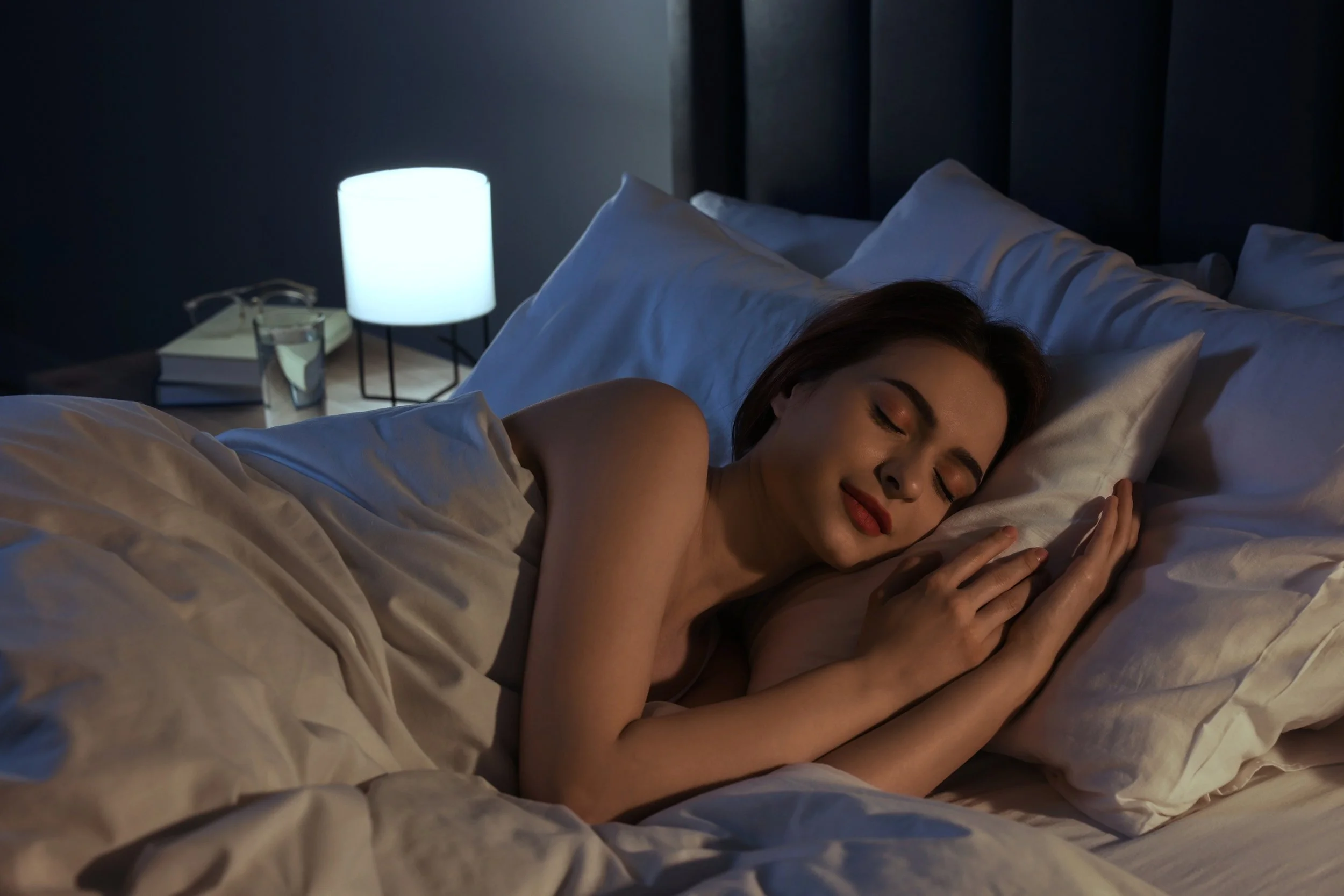Ever wonder why, despite getting enough sleep, you still feel exhausted, moody, or unfocused? Research suggests the issue might be your exposure to artificial light at night, such as screens from smartphones, tablets, computers, and LED lights.
In this article, we’ll have a look at what scientists have discovered and what you can do to get a good rest, not just enough hours of sleep.
Image Credit: New Africa via Shutterstock / HDR tune by Universal-Sci
How Light at Night Affects Your Body
Research led by neuroscientist Dr. Randy J. Nelson of West Virginia University reveals that artificial light at night goes beyond simply affecting your sleep, it hurst sleep quality.
First, it can interfere with the immune system, making it either weaker or causing too much inflammation. Additionally the research shows that disturbing our natural sleep-wake cycle (circadian rhythm) can lead to problems with metabolism, which may help explain rising obesity rates.
Interestingly, the studies also found that messing with our body’s internal clock can directly affect our mood, which could help us better understand depression and anxiety.
Current clinical trials at West Virginia University are exploring ways to reduce the harmful effects of night-time lighting, especially in healthcare settings. These trials aim to determine whether improved lighting conditions can enhance recovery after medical procedures such as strokes and heart surgeries, as well as benefit shift workers who often experience disrupted sleep.
Suggested article: How Unpredictable Sleep Patterns Can Harm Your Health - (Universal-Sci)
Why Timing Matters for reasearch
When it comes to how research is conducted, Dr. Nelson’s also has some opinions. He proposes to treat time of day as a vital biological variable in research. He points out that experimental outcomes can differ greatly based on when studies are performed, yet this detail is seldom reported in scientific literature.
"The answer to an experimental question may depend in part on the time-of-day when the question is asked," Dr. Nelson notes.
Recognizing time of day as an important biological variable could lead to more consistent and accurate scientific results, helping us better understand and treat diseases associated with disrupted biological rhythms.
Simple Changes, Major Benefits
You can protect your health by taking straightforward steps like reducing evening screen time, opting for warmer lighting colours after sunset, and keeping a regular sleep schedule. These simple habits align your lifestyle more closely with natural light cycles and may prevent various health issues related to circadian disruption.
From our article: A good night's sleep starts during the day - 10 simple tips to improve sleep quality we derived some additional, more general, tips on how to improve your sleep quality and duration:
Try to get up and go to bed at the same time every day, even on weekends
Make sure to create an environment with sufficient light during the day
Avoid naps or power naps during the day
Schedule a moment of worry during the day to give your thoughts free rein
Exercise regularly, but no later than three hours before bedtime
Don't eat heavy meals in the hours before bedtime
Do not drink caffeinated and alcoholic drinks for several hours before going to sleep
Only participate in relaxing activities at least an hour before bed (such as reading or meditation)
If you are up for it, don’t just reduce screen time in the evening but keep screens out of the bedroom all together. (think of tablets, smartphones, television etc.)
And last but not least: maintain a quiet and dark bedroom
Finally, If you’d like to learn more about Dr. Nelson, don’t miss his interview in Brain Medicine, see the link below. You can also explore our other articles on sleep for more insights and tips.
Sources, further reading and more interesting articles:
Randy J. Nelson: Disruption of circadian rhythms on brain function and health - (Brain Medicine)
How Unpredictable Sleep Patterns Can Harm Your Health - (Universal-Sci)
Can catching up on sleep during the weekend save your heart? - (Universal-Sci)
An Increasing Number of People Are Struggling with Sleep: Four Common Causes and Helpful Solutions - (Universal-Sci)
Too busy to follow science news during the week? - Consider subscribing to our (free) newsletter - (Universal-Sci Weekly) - and get the 5 most interesting science articles of the week in your inbox
FEATURED ARTICLES:







